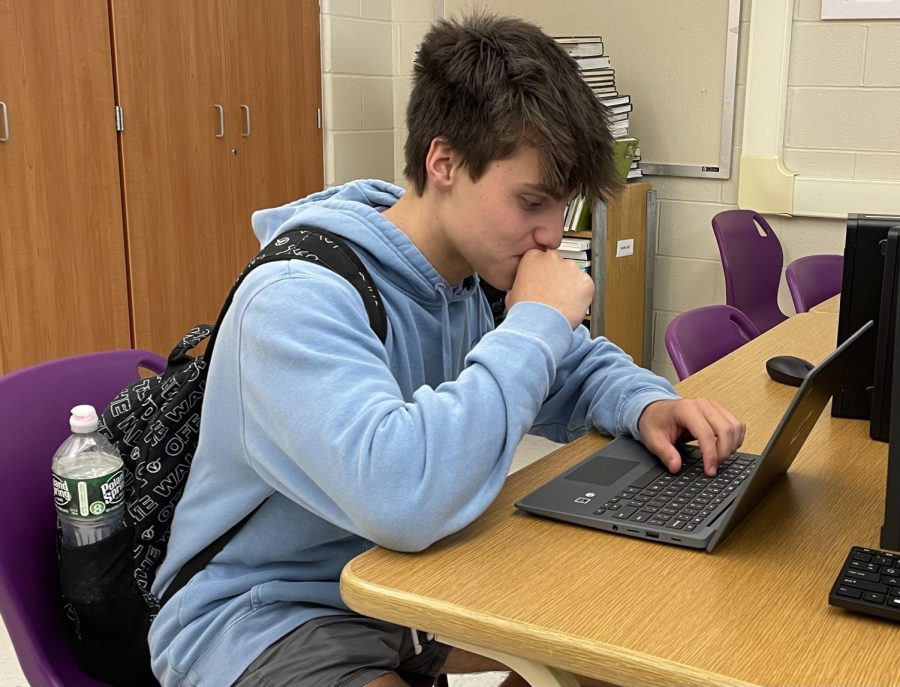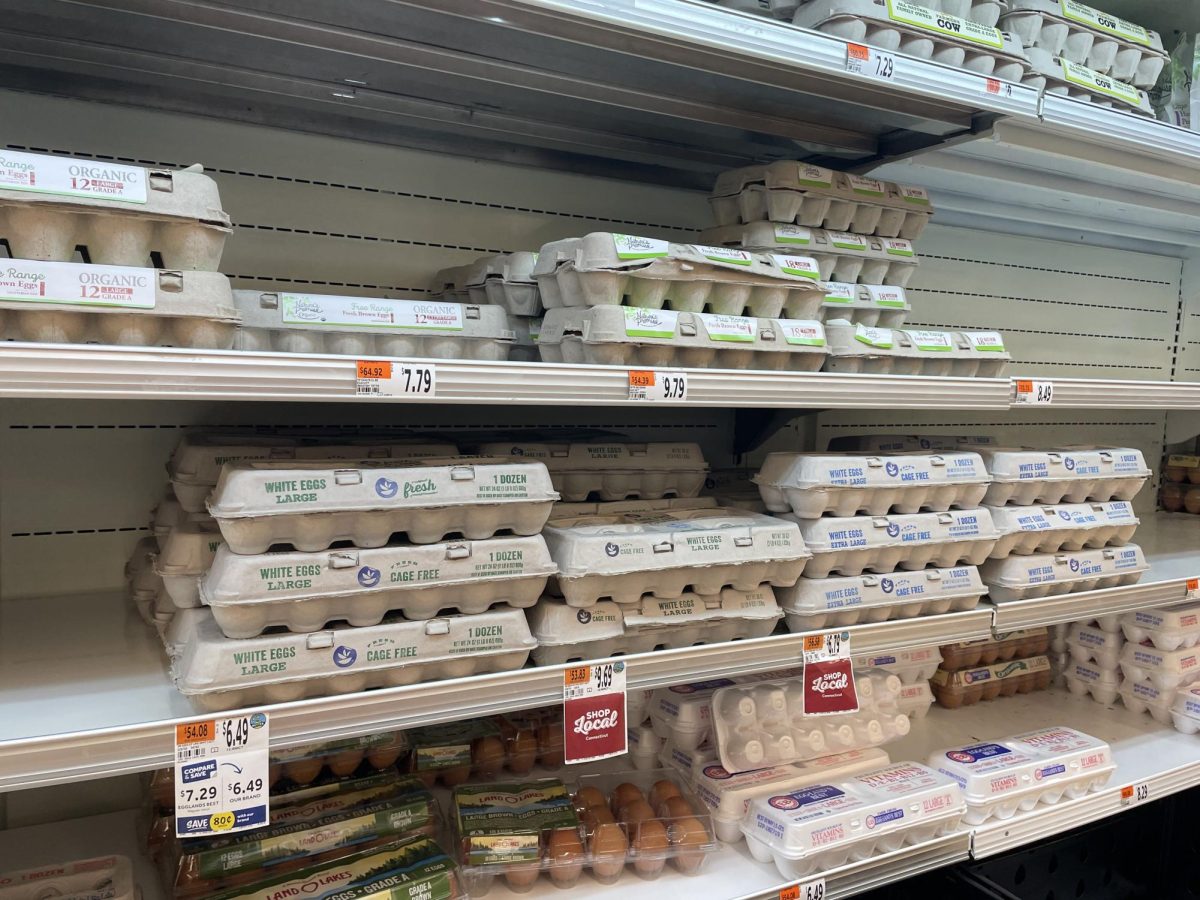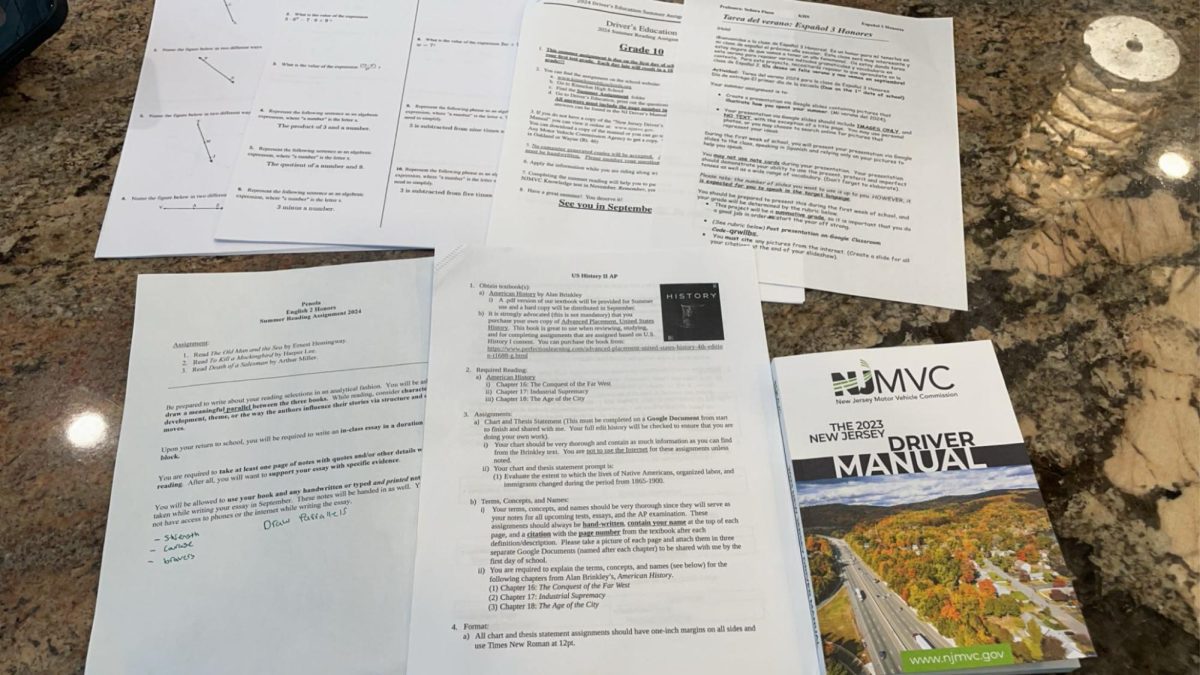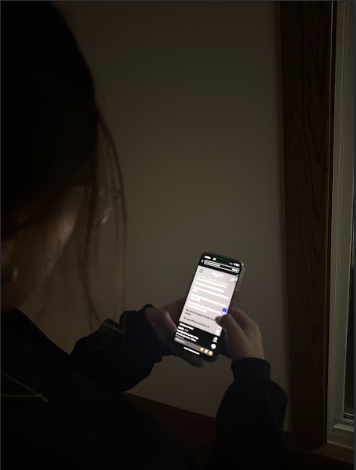During the first week of the 2022 school year, many students were surprised to learn that Chromebooks were the mandated device that must be utilized in classrooms. Despite becoming a one-to-one district in 2020, students have been allowed to use personal devices instead of Chromebooks over the past two school years. Considering the magnitude of the change in students’ daily lives, the shift has sparked strong emotions among the student body.
An equally strong administrative policy backs the shift to Chromebooks. The school believed a device that would limit multitasking and block streaming would help wi-fi issues. Principal Gary Suda said, “Kids were watching Netflix and streaming and doing all these different things, over these past couple of years, that were draining our wi-fi and our data.” The shift to Chromebooks is seen as a feasible solution to the misuse of school wi-fi.
Many students are used to the processing speeds of Macbooks and other high-end laptops, and so the idea of transitioning to a weaker model is difficult to get behind. Senior Samantha Benzija said, “They’re too slow- slower than Macbooks. Everyone in Kinnelon has their own computer and if they can’t afford a computer they can get a Chromebook, but don’t penalize students who have laptops.”
The Chromebooks, in theory, are supposed to be utilized as notebooks or textbooks in school, not streaming devices or multitasking tools. The Chromebooks are importantly reliable. With COVID regulations subsiding, statewide testing has returned. Statewide testing necessitates that all students have computers that work. As Suda said, “If we’re having testing today, we can make sure this [the Chromebook] is going to function. We know with some fidelity that these are going to work.”
The student negativity toward the Chromebooks has been met with teacher indifference. Many faculty members understand the rationale behind the change but believe the new laptops present their own set of challenges. History teacher Peter Zablocki said, “Chromebooks have the problem of not enough internal storage. So unless you have access to the internet, you can’t access your files.”
Even so, certain students are grateful. Senior Julia Schaper said, “I shattered my laptop so this is all I have. I kicked off my bed in the middle of the night and there were green lines [on the screen].” Many of the expensive computers, while impressively built, are also subject to breaking because of their metal frames. The plastic build of the Chromebook adds a cushion against impacts and falls. The administration is a big fan of the computers. Principal Suda said, “It does everything I need. I think they’re a great option.”
Many students are upset with the shift away from their personal laptops, but it is likely that the longer the policy continues, the more of an afterthought it will be. Teachers tend to see the benefit of the student equity the Chromebooks create and also benefit from the homogeneity of the operating systems they have to deal with. The administration supports the shift completely and the move makes sense from their standpoint. If every student needs a replaceable, cost-efficient computer that functions more like a digital encyclopedia than a multitasking machine, then Chromebooks are a reasonable option.









